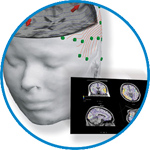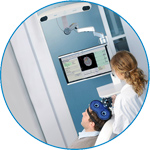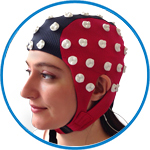- Home
- About ANT
-
Products

asa
asa is a highly flexible EEG/ERP and MEG analysis package with a variety of source reconstruction, signal analysis and MRI processing features.
.jpg)
eego mylab
The new frontier in multimodal brain research. With up to 16 kHz sampling rate, 256 EEG channels and unique software features, eego mylab gives you an unprecedented in-depth understanding of the human brain.

eego sports
eego sports offers complete freedom to collect high-density EEG data, bipolar EMG signals, and a variety of physiological sensor data, wherever and whenever required, with publish quality data in less than 15 minutes!

waveguard net
The waveguard net sets a new standard for research applications requiring high-density EEG data acquisition with quick preparation time, high flexibility, and subject comfort.

visor2
Our new and upgraded visor2 solutions integrate all the latest technologies for navigated rTMS, dual-coil navigation support, EEG-TMS recordings and pre-surgical evaluation for the highest quality in research and clinical procedures.

powerMAG ANT
The PowerMAG ANT 100 rTMS stimulator is designed for the specific needs of high-end TMS applications. Powerful high-frequency TMS as well as high precise single pulse and repetitive pulse protocols are combined in one single device.

xensor
xensor offers the solution for digitization of 3D electrode positions. xensor takes care of the whole procedure; it records, visualizes and stores positions acquired with a dedicated digitizer.

waveguard original
waveguard original is the cap solution for EEG measurements compatible with fMRI, MEG and TMS system. Use of active shielding guarantees performance in even the most demanding environments.

waveguard connect
waveguard connect EEG caps are a perfect match for hospitals and institutes aiming at reliable EEG, maximum uptime and great patient comfort! For optimal signal quality, the electrodes are made of pure, solid tin.

waveguard touch
waveguard touch is a dry electrode EEG cap. The unique Ag/AgCl coated soft polymer electrodes provide stable, research-grade EEG signals while maintaining subject comfort. The combination of these innovative dry electrodes and the industry-leading waveguard cap makes waveguard touch the best solution for dry EEG.

smartmove
smartmove allows planning of a complete TMS session ahead by defining stimulation sites based on anatomical MRI information and functional information like fMRI, PET or EEG/MEG.
Stay - References
- Support
- Events
- News
- Contact Us
You are here
ERP signatures of cross-modal semantic fragment priming: Early context effects in speech perception
ERP signatures of cross-modal semantic fragment priming: Early context effects in speech perception
Research in speech perception and language comprehension has shown that the processing and recognition of a word (the target) is facilitated if a related word (the prime) precedes it. This effect is observable even if the prime only consists of a word-initial fragment (e.g. bor- facilitates the recognition of border). The fragment priming paradigm has gained an important role in ERP studies on lexical access, since it reliably shows a distinct deflection at around 350 ms after word-onset, taken as index for lexical activation. While previous studies concentrated on form-related prime-target pairs, we are interested in ERP fragment priming components elicited by meaning-related pairs. For that purpose, we designed a cross-modal priming experiment, in which primes were either the initial syllables of their following targets (e.g. bor[der]-border; phonological condition) or the initial syllables of a semantic relative to these targets (e.g. mar[gin]-border; semantic condition). We found a reliable P350 effect in the phonological condition, but not in the semantic condition, and a N400 priming effect for the phonological condition. The phonological and the semantic condition differed from the control condition in an early negativity around 180 ms post onset. Our results are discussed with respect to ERP components that index form-based and meaning-based processing, possibly reflecting separate representations.

 Read more
Read more.jpg)




